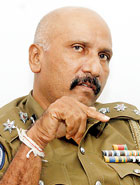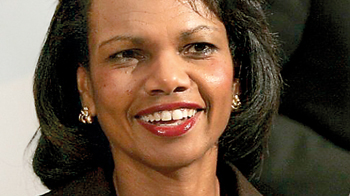Letters to the Editor
View(s):Medicinal drugs policy would protect us against bullying pharma giants
Your newspaper reported that the British drug giant Glaxo-SmithKline had misled the medical world and consumers by withholding evidence that their new antidepressant drug was not only ineffective but harmful to children. Glaxo finally admitted negligence and paid billions of dollars in compensation.
As reported in The New York Times, in 2005 the City of New York filed law suits against several top companies for inflating prices and cheating tax-payers.
We need a National Medicinal Drug Policy:
1. To ensure the availability, affordability and efficacy of safe and good quality medicines relevant to the healthcare needs of the people in a sustainable and equitable manner.
2. To make compulsory the rational use of these medicines by healthcare professionals and consumers, or the use of generics.
3. To promote locally manufactured essential medicines.
In 1991 and 1996, the Health Ministry made two attempts to get Cabinet approval for a National Medicinal Drug Policy. Both failed. Why the inordinate delay to present a bill on National Medicinal Drug Policy?
Addressing a workshop on January 15, 2011, Minister of Health Maithripala Sirisena said his ministry was a bottomless pit of corruption and vowed to clean it up and implement the policy. This is encouraging, but his powers are limited to the confines of his ministry. The Legal Draftsman’s Department is outside his purview.
It is worth tracing the history of medicinal drugs reforms.In the early 1960s, Professor Senaka Bibile (1920-77), pharmacologist and Dean of the Medical Faculty (Peradeniya), was asked to recommend a system for selecting drugs for hospital supplies. He responded with the Ceylon Hospital Formulary, which listed some 600 drugs under their generic names. The World Health Organisation and UNCTAD based their policies of rational pharmaceutical use on Professor Bibile’s policy.
Professor Bibile’s contribution was received with overwhelming support at the 35th World Health Assembly, in Geneva, in May 1982, causing severe losses to the multinationals. UNCTAD studied Sri Lanka’s experience and, satisfied that the model could be used to develop and implement drug policies in Third World nations, obtained Professor Bibile’s services.
A document called “Case studies in transfer of technology; pharmaceutical policies in Sri Lanka”, was published as a guideline to initiate reforms in other nations. Professor Bibile died under mysterious circumstances in September 1977, in Guyana, while on a mission to assist them.
The true nature of the multinational pharma giants, whose collective funding and turnover is a close second to the global arms trade, has spread its tentacles to reach, invade and command individuals dealing with all stages of the industry, including the prescribing and dispensing of medicinal drugs.
K. K. S. Perera, Panadura
Birth control for crows
Your news item titled “‘Will it be a case of bye, bye blackbird” (Sunday Times, June 17, 2012) mentions removing crows’ nests from trees and trimming the branches to prevent crows from breeding.
This seems a good idea. Dumping garbage on the street should also be stopped. Perhaps we should also consider birth control for crows.
J. T. Mirando, Negombo
On the chances of having a Tamil President | Sri Lankan issue
I wish to make some comments relating to a letter titled “The day we can all call ourselves Sri Lankan has yet to come” (Sunday Times, June 17, 2012).
This letter, sent by Professor J. Jinadasa of Massachussetts, USA, was a response to a letter by Mr. Cecil Dharmasena, which in turn was a reply to an earlier letter by Professor JJ, titled “Yes, we can call ourselves Sri Lankans”, which appeared on June 10.
Mr. Dharmasena’s June 10 letter was a response to another letter by Professor JJ, titled “Can we call ourselves Sri Lankan?”, published the week before, on June 3, 2012. The June 3 letter was the first in a series of letters on the theme of Sri Lankan identity sent in by Professor Jinadasa and Mr. Cecil Dharmasena.
My comments apply only to Professor Jinadasa’s letter which was published on June 10. Let me say that Professor Jinadasa’s response was well-informed and moderate, not abrasive, as some replies can be.
Professor Jinadasa says that in order for all of us to consider ourselves “Sri Lankan”, we should be able to produce a Tamil or Muslim President or Prime Minister. He referred to what happened in the US, where a Black man became President. The professor said that all US citizens, whatever their colour, “are all Americans.”
I would like to make a few points:
1. President Barack Obama became President purely through that country’s Electoral College system of voting. Like all American Presidents, Obama was elected NOT by popular vote, the “one man/woman-one vote” system that applies here in Sri Lanka. If the latter system applied in the US, it is not likely that a Black man would be elected President for some years to come. It would certainly not have happened in 2008, the year Obama became President.
2. I suspect that President Obama’s success was due partly to his being half-white.
3. After how many years did “Black” success come to the US? Professor Jinadasa’s claim that citizens of whatever colour in the US “are all Americans” appears to imply that this perception is inherent in the American psyche. Is that really the case?
For how long did the Blacks of America have to fight (and they fought very hard) for it to sink into the American psyche that all US citizens, whatever their colour, were “all Americans”? How many thousands of these “all American” US citizens used violence on other “all American” US citizens of a certain colour? Many commentators on this year’s US Presidential election are pondering whether Republican candidate Mitt Romney’s Mormon Christian background would go against him.
If Professor Jinadasa’s thesis that all Americans, whatever their colour, have always been ethnically unbiased and have always treated Blacks as equals, then we need some clarification regarding past discriminations. Perhaps the Professor is referring only to the present generation of Americans. If that is the case, then we have to assume that it has taken the American people some 250 years to acquire their angelic “We are all Americans” attitude.
4. Professor Jinadasa claims that “we Sri Lankan citizens are not ready to accept the American notion that all citizens of whatever colour ‘are all Americans’ ”, suggesting that Sri Lankans are still not ready to accept that all citizens born in Sri Lanka or born to Sri Lankan parents are Sri Lankan. On what evidence does he base this assumption?
On the subject of Presidential possibilities, the chances of a Tamil becoming PM are certainly not unlikely. There was the possibility of the late Mr. Lakshman Kadirgamar being appointed PM. The idea was shelved because of opposition, some of it on ethnic grounds, some for political reasons. But it is not beyond the possible in the future. Tamils and Muslims have held very high posts, including those of Chief Justice, Governor General, Attorney-General, and so on.
“PROLANKA”
Let’s be ‘Sri Lankans’
After reading a series of letters on ethnic identity in the Sunday Times, I would like to make a few comments.
I cannot approve of anyone boasting about their race – Sinhala, Tamil, Muslim, whatever. The only ethnic identity the Sinhala people have is their use of the Sinhala language as their mother tongue. Similarly, other races use their mother tongue – Tamil, Telugu, Malayalam, and so on. No race can boast of a unique genetic chromosome in their DNA background that defines them. All the races in the world are a mixture of other races. Just look at the surnames of people in this country: you see a mix of Tamil, Portuguese, Dutch and English names.
If a person talks of his race, he is only displaying his ego. Race is a cover to inflate communal and chauvinistic feelings. Please, let’s call ourselves Sri Lankans.
Leena Gunaratne, Piliyandala
What are we doing about crime and abuse, and why are we silent?
Where are we heading? What is happening to our beautiful country? The news is full of stories of children being raped and murdered. Human life has no value. Abuse is rampant at every level. Why are we citizens silent? Why is the State silent? Why are the Buddhist, Hindu, Muslim and Christian leaders silent?
An official was quoted as saying that parents should take responsibility. It is the duty of the State to maintain law and order and make the country safe for everyone, children included. Others blame the media for highlighting cases of rape and murder. But the media should report the truth, both the good and the bad.
It is easy to say that mothers should be more watchful of their children, but what can they do when their children are kidnapped from school and raped? Why are we in this predicament? It is mainly due to poverty. With the cost of living spiraling, both parents need to work, and even with both parents working, most families cannot manage.
Now what is the law doing about it? Why are the perpetrators’ photographs and names not published? We now know that these people all have political connections.
Deserters from the three forces are roaming free and taking their frustrations out on harmless people.
Awareness programmes should be conducted at village level to teach families about the dangers surrounding them. Children should be warned about the dangers they could face. Gone are the days of the carefree child. Such is the world we live in now.
Education is vital. Teachers should tell their children that no one has the right to touch them, under any circumstances. This also applies to little boys, who are being abused by school masters and principals. Computers, the Internet and mobile phones have assisted in the rise of child abuse in Sri Lanka.
The National Child Protection Authority officers and the Women and Children’s Bureau are doing their part, but the leaders of the country and the Police too must cooperate and do their part by bringing the culprits to book. The law-makers should bring in tough laws with maximum punishment – life imprisonment or the death penalty. Only then will we see a decline in crime.
Rani Jesudian, Nugegoda
Crack down on errant bus drivers and conductors
It was reported that the Minister of Private Transport is to draw up an action plan to minimise the number of road accidents. This is most welcome. The Minister must also see that regulations currently in force are strictly enforced before he introduces new laws.
Presently, it is a must that all passengers be given tickets; that bus conductors be properly clad in uniform, and beggars and vendors not be allowed to make a nuisance of themselves inside buses. Sad to say, these rules are rarely followed.
Conductors and drivers do not give the elderly and the infirm enough time to get into or out of buses. Buses stop at random points. Buses stop to allow policemen in uniform to get on board. I have never seen policemen pay for their bus fare. Are they exempt?
Bus operators are required to display the bus number and the fare table inside the buses, but few do.
There are times when buses set out in the morning without conductors, who come on board only halfway through the journey.
The Minister will earn the gratitude of passengers if officers in plainclothes are deployed to make sure the rules are strictly followed before enforcing any new rules. Errant bus crews must be brought to book and road accidents prevented as far as possible.
Merril T. M. de Silva, Moratuwa
comments powered by Disqus















